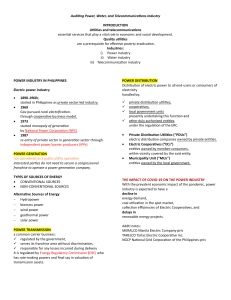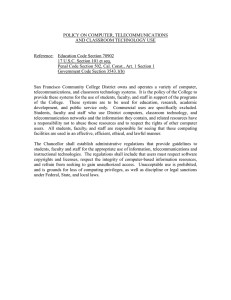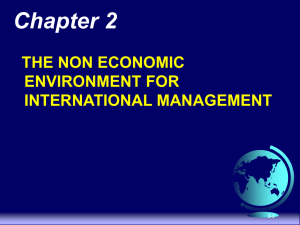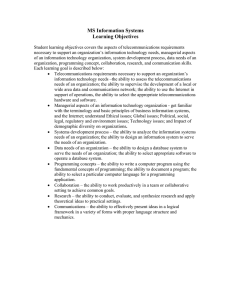Philippine Power, Water, & Telecom Industry Audit
advertisement
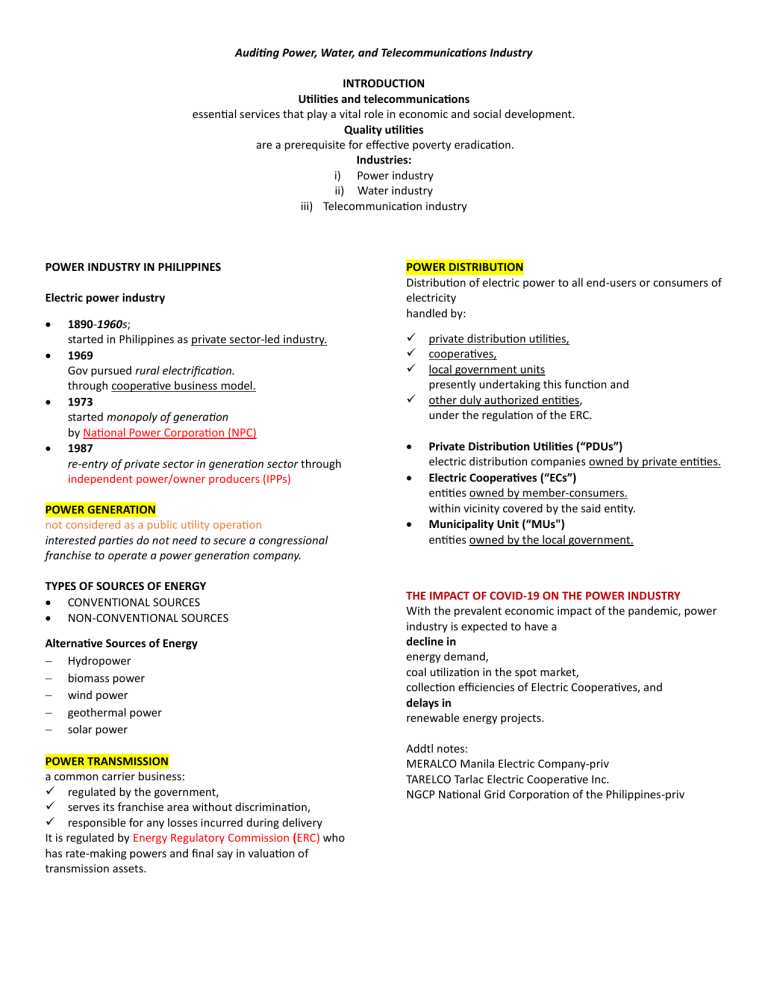
Auditing Power, Water, and Telecommunications Industry INTRODUCTION Utilities and telecommunications essential services that play a vital role in economic and social development. Quality utilities are a prerequisite for effective poverty eradication. Industries: i) Power industry ii) Water industry iii) Telecommunication industry POWER INDUSTRY IN PHILIPPINES Electric power industry 1890-1960s; started in Philippines as private sector-led industry. 1969 Gov pursued rural electrification. through cooperative business model. 1973 started monopoly of generation by National Power Corporation (NPC) 1987 re-entry of private sector in generation sector through independent power/owner producers (IPPs) POWER GENERATION not considered as a public utility operation interested parties do not need to secure a congressional franchise to operate a power generation company. TYPES OF SOURCES OF ENERGY CONVENTIONAL SOURCES NON-CONVENTIONAL SOURCES Alternative Sources of Energy Hydropower biomass power wind power geothermal power solar power POWER TRANSMISSION a common carrier business: regulated by the government, serves its franchise area without discrimination, responsible for any losses incurred during delivery It is regulated by Energy Regulatory Commission (ERC) who has rate-making powers and final say in valuation of transmission assets. POWER DISTRIBUTION Distribution of electric power to all end-users or consumers of electricity handled by: private distribution utilities, cooperatives, local government units presently undertaking this function and other duly authorized entities, under the regulation of the ERC. Private Distribution Utilities (“PDUs”) electric distribution companies owned by private entities. Electric Cooperatives (“ECs”) entities owned by member-consumers. within vicinity covered by the said entity. Municipality Unit (“MUs") entities owned by the local government. THE IMPACT OF COVID-19 ON THE POWER INDUSTRY With the prevalent economic impact of the pandemic, power industry is expected to have a decline in energy demand, coal utilization in the spot market, collection efficiencies of Electric Cooperatives, and delays in renewable energy projects. Addtl notes: MERALCO Manila Electric Company-priv TARELCO Tarlac Electric Cooperative Inc. NGCP National Grid Corporation of the Philippines-priv WATER UTILITY INDUSTRY Ph main components of water resources management vested in mandates of various government agencies that undertake most of water resources programs and projects in the country. TELECOMMUNICATIONS INDUSTRY Telecommunications industry National Water Resources Board (NWRB) created in 1974 as authoritative national organization. coordinate and integrate all activities in water resources development and management. Agencies involved in water supply and distribution: (DPWH) Department of Public Works and Highway (DILG) Departments of Interior and Local Government Local Governments (MWSS) Metropolitan Waterworks and Sewerage Services (LWUA) Local Water Utilities Administration Water infrastructure provided is classified into three levels: Level I Stand-alone water points serving average of 15 households w/i 250m distance Level II Piped water with a communal water point. serving average of 4–6 households w/I 25m distance Level III Piped water supply with a private water point. based on daily water demand of MT 100L per person Common water sources and water treatment plants Water sources (AIL) Angat Dam Ipo Dam La Mesa Dam Water treatment plant (BEC) Balara treatment plant East La Mesa treatment plant Cardona treatment plant The Impact of COVID-19 on the Water industry The COVID-19 pandemic has increased the need for clean water to prevent infection, while making it more difficult for some remote and vulnerable communities to access supplies 1995 industry was deregulated when President Fidel Ramos signed Republic Act 7925 (Public Telecommunications Policy Act of the Philippines) Effect of the law: opened sector to more private players improved the provision of telecom services at better and fairer rates. lead to creation of many telecommunication service providers for mobile, fixed-line, Internet and other services. Other regulatory frameworks relative to this industry RA 3846 Radio Control Law of the Philippines RA 6849 Municipal Telephone Act of 1989 RA 7925 Public Telecommunications Policy Act of the Philippines RA 10844 department of information and communications technology act of 2015 Republic Act No. 11934 SIM Registration Act “SIM card law” a Philippine law mandating the registration of SIM cards before activation.
